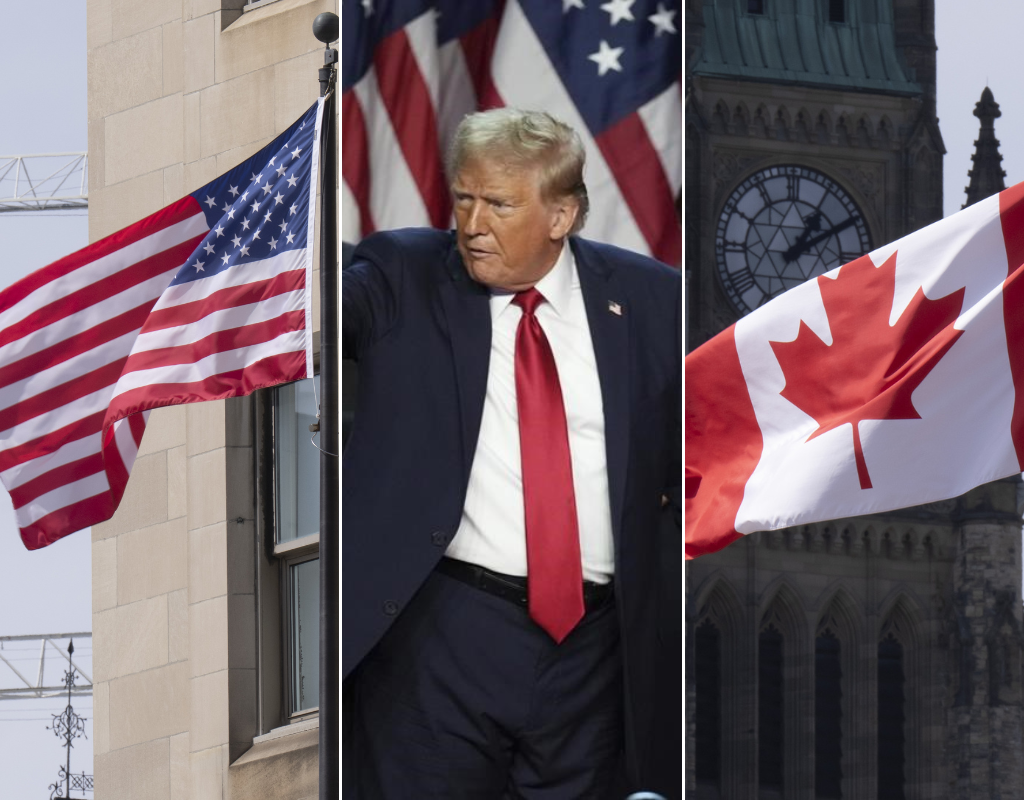‘Moving to Canada’ Searches Spike After U.S. Election, But It’s Not So Simple
Following the recent U.S. election, a familiar trend has emerged: a surge in Google searches for “moving to Canada.” This phenomenon has become a predictable reaction among Americans dissatisfied with presidential election outcomes, as many seek to explore the possibility of finding a better life north of the border.
Election Results and Search Trends
Despite president-elect Donald Trump’s victory speech promising a “golden age for America,” many Americans appear skeptical, leading to a peak in searches related to relocating to Canada. According to Google Trends, queries such as “how to legally move to Canada,” “moving to Canada from U.S.,” and “moving to Canada requirements” saw significant increases, particularly from states that overwhelmingly supported Vice President Kamala Harris, including Oregon, Washington, New Hampshire, and Vermont.
In contrast to the post-2016 election spike, which overwhelmed Canada’s immigration website, the Canadian government’s immigration page appears to be functioning normally this time around.
Social Media Reactions
On social media platforms like X, many users expressed their intentions to move to Canada, with responses ranging from lighthearted jokes to serious considerations. Some individuals shared their personal stories, while others offered humorous takes on the situation:
- “My son is googling how to move to Canada and asking me if I can sell the house.”
- “The marriage proposals from my American friends are rolling in — my inbox is basically ‘Love Is Blind: Americans who will now do literally anything to move to Canada.’”
- “Just a reminder that you guys can’t just move to Canada. You need to chug a litre of maple syrup before you live sappily ever after.”
A Different Context?
Historically, interest in moving to Canada has often been more of a joke than a genuine plan. After the 2016 election, many celebrities announced their intentions to relocate, but few followed through. However, this election cycle feels different, with Americans grappling with the reality of a potential second Trump term.
As noted by Fortune magazine, the current political climate has intensified fears among those opposed to Trump, especially given the possibility of a Republican-controlled Senate and House, which could lead to significant legislative changes.
The Reality of Moving to Canada
While Canada may seem appealing to those disenchanted with U.S. politics, it is essential to recognize that moving to Canada is not as simple as it may appear. Prime Minister Justin Trudeau recently announced a reduction in the number of permanent immigrants allowed into the country, from 500,000 to 395,000 next year. This decision reflects the government’s attempt to balance labor needs and population growth in the aftermath of the pandemic.
Although Canada offers various immigration pathways, including federal programs for skilled workers and work permits for those with job offers, the immigration process can be complex and time-consuming. Aspiring immigrants must navigate visa applications, residency requirements, and the possibility of long wait times.
Warnings from Canadians
Canadians have also chimed in, cautioning that life in Canada may not be the utopia some Americans envision. Comments on social media highlighted that Canadian politics are not vastly different from those in the U.S. and that the country faces its own challenges, such as high inflation, a housing crisis, and a healthcare system that, while universal, has its shortcomings.
Some tweets emphasized the need for serious research before attempting to move, as securing a visa requires more than just a passport. “I don’t think folks realize that a passport isn’t going to do much for you. If you’re planning to move to another country, you’re gonna need to start researching and applying for visas.”
Historical Context
While it’s too early to predict a mass exodus of Americans into Canada, historical data shows that some have successfully made the move in the past, albeit not in the overwhelming numbers suggested by social media. For example, in the first quarter of 2018, 2,615 U.S. citizens were granted permanent residency in Canada. Following Trump’s 2016 election, an average of 2,342 Americans obtained permanent residency per quarter, compared to 2,131 per quarter from 2007 to 2016.
Conclusion
The surge in “moving to Canada” searches post-election underscores the deep divisions within the U.S. political landscape. While the idea of relocating may be appealing to some, the reality of immigration and life in Canada requires careful consideration and planning. As Americans navigate their options, the complexities of moving north serve as a reminder that political dissatisfaction can lead to a search for change, but achieving that change is rarely straightforward.
Thank you for taking the time to read this article! Your thoughts and feedback are incredibly valuable to me. What do you think about the topics discussed? Please share your insights in the comments section below, as your input helps me create even better content.
I’m also eager to hear your stories! If you have a special experience, a unique story, or interesting anecdotes from your life or surroundings, please send them to me at whatsissue@gmail.com. Your stories could inspire others and add depth to our discussions.
If you enjoyed this post and want to stay updated with more informative and engaging articles, don’t forget to hit the subscribe button! I’m committed to bringing you the latest insights and trends, so stay tuned for upcoming posts.
Wishing you a wonderful day ahead, and I look forward to connecting with you in the comments and reading your stories!
